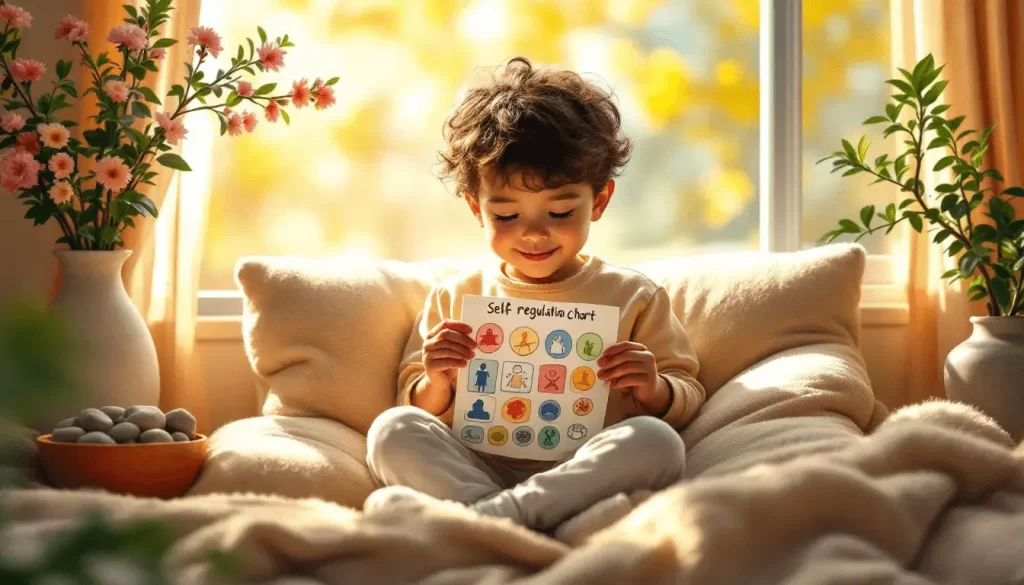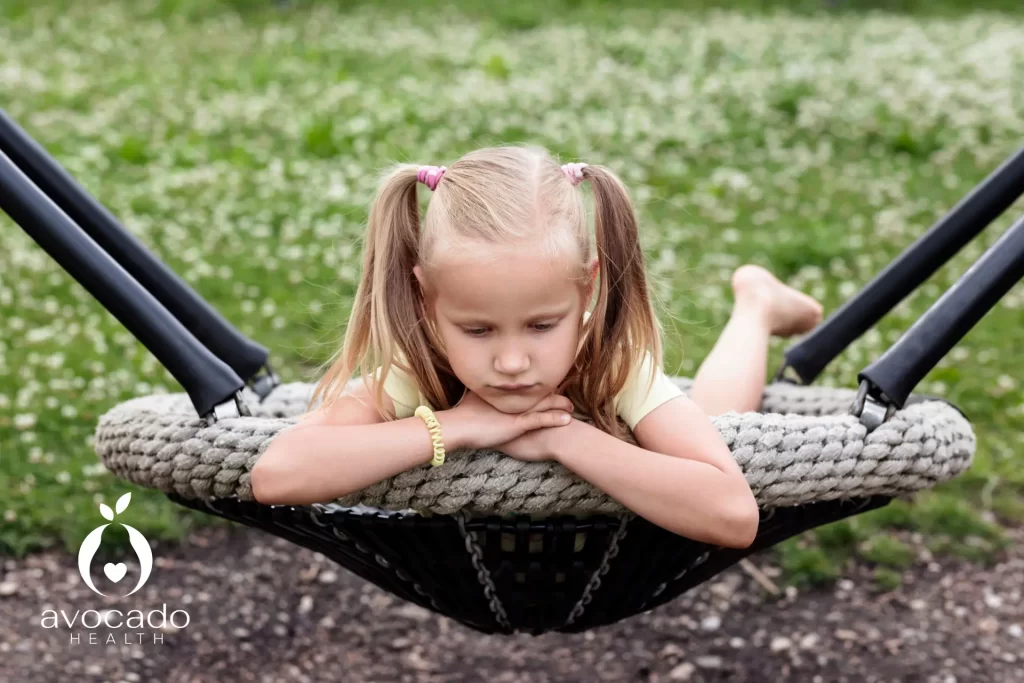
Parenting highly sensitive children presents unique challenges. You’ll learn how to apply practical parenting tips to help highly sensitive children. Discover how to recognize their traits, create a nurturing environment, and manage their emotions effectively. Expect actionable strategies to reduce sensory overload and foster emotional resilience.
🔹 15-20% of children are highly sensitive – this is not a disorder.
🔹 Sensory-friendly spaces reduce meltdowns by 40%.
🔹 Emotional validation boosts long-term resilience.
Table of Contents
Signs to Recognize Highly Sensitive Children

Causes of High Sensitivity in Children
Highly sensitive children often have a more reactive nervous system, with certain genes linked to their heightened sensitivity from birth.
While genetics lay the foundation, their environment, upbringing, and experiences play a crucial role in shaping how this trait develops. Parenting styles, cultural expectations, and life experiences determine whether their sensitivity becomes a strength or a challenge.
Identifying the unique traits of highly sensitive children is crucial to providing the support they need. They often possess a keen awareness of their surroundings and an exceptional ability to notice details others might overlook.
Approximately 15-20% of children are classified as highly sensitive, and their heightened responsiveness to the physical and emotional world, as well as life’s expectations, can make everyday experiences both enriching and challenging.
Common Characteristics of Highly Sensitive Children
Highly sensitive children experience the world more intensely than others. Their deep emotional attunement to their surroundings affect their behavior, preferences, and interactions. Here are some common traits:
- Strong emotional responses – Get overwhelmed in highly stimulating environments.
- Profound empathy – Care deeply about others’ feelings, leading to heightened emotional sensitivity.
- Emotional meltdowns – Happen when feeling overwhelmed by emotions or external stimuli.
- Keen attention to detail – Process subtleties more deeply and think critically.
- Difficulty handling corrections – Take things personally and struggle with criticism.
- Struggle with unexpected changes – Prefer routine and have trouble with surprises.
- Preference for quiet play – Enjoy gentler activities over rough play.
- Strong intuition – Rely on instinct and deep reflection before making decisions.
- Observant before acting – Prefer to watch before participating in new activities.
- Shy or quiet – May be reserved, especially in new situations.
- Emotional extremes – Parents often describe them as either extremely happy or deeply upset.
Differentiating Highly Sensitive Children from Other Mental Health Challenges
While high sensitivity isn’t a mental health condition, it can sometimes be mistaken for anxiety or ADHD. Highly sensitive children (HSCs) experience deep processing and big emotions, which can sometimes look like anxiety, attention challenges, or being overly emotional. However, the reasons behind their reactions are different.
Key Differences:

- Highly Sensitive Children (HSCs):
- Feel overwhelmed by sensory input, such as crowded places, strong smells, or the scratchiness of certain fabrics.
- Can be deeply affected by others’ emotions and may misinterpret actions, taking things more personally.
- Experience uncomfortable feelings intensely, like frustration or sadness, but can manage with the right support.
- May seem overly emotional, but their reactions stem from deep processing rather than fear or impulsivity.
- Children with Anxiety or ADHD:
- Anxiety: Driven by persistent worry, often about things that haven’t happened yet. These children may avoid situations entirely out of fear.
- ADHD: Struggle more with impulsivity, distractibility, and difficulty regulating emotions in the moment, rather than deep emotional processing.
For example, a highly sensitive child might feel overwhelmed by the noise and energy at a theme park but can enjoy it after breaks. A child with anxiety might refuse to go due to fear of crowds, while a child with ADHD might impulsively run from ride to ride, struggling with self-regulation.
Recognizing high sensitivity allows parents to support their children in ways that honor their temperament, avoiding mislabeling or unnecessary interventions. With understanding and the right approach, highly sensitive children can learn to navigate their emotions and thrive.
Creating a Supportive Environment for Your Sensitive Child

Creating a nurturing environment is essential for the well-being of highly sensitive children. This involves tailoring the home setting to meet their unique emotional and sensory needs.
Strategies such as establishing routines, designing a calm space, and reducing sensory overload can significantly contribute to their emotional regulation and overall happiness.
Establishing Routines
Sensitive kids really thrive on routines. Think of it like a safety net – knowing what to expect makes them feel secure. Simple things like a regular wake-up and bedtime can make a big difference, giving them a sense of calm and control.
When you’re planning their day, try not to cram too much in. They need downtime to recharge. And if plans do have to change, give them a heads-up as early as you can. It helps them adjust without feeling overwhelmed.
A consistent routine helps parents manage time effectively, reducing feelings of overwhelm. Routines are especially beneficial for many kids, helping them prepare for what to expect and reducing anxiety and stress.
Designing a Calm Space

A calming physical environment supports emotional regulation and provides a sanctuary for highly sensitive children. Incorporating soft lighting and calming colors in a child’s room can promote relaxation and comfort. Minimal distractions and clear, simple choices can help sensitive children feel empowered without overwhelming them.
Offering choices rather than commands can reduce resistance and promote cooperation in sensitive children. This approach not only makes them feel more in control but also helps mitigate stress and anxiety by fostering a sense of security and predictability.
Reducing Sensory Overload
Sensitive children often experience sensory overload, which can lead to heightened anxiety and stress.
Ever notice how a kid can fixate on the smallest things? Those seemingly irrational demands, like the exact way their blanket is folded or the specific order of their stuffed animals – that’s not just being difficult. It’s their way of anchoring themselves when everything else feels like it’s spinning.
Creating quiet zones in the home can help sensitive children retreat when they feel overwhelmed. These quiet zones should be equipped with calming tools and minimal distractions to help children feel safe.
Reducing sensory input helps sensitive children manage their environment more effectively. This might include using noise-canceling headphones, providing fidget toys, or ensuring that their space is free from excessive noise and bright lights.
Emotional Awareness and Regulation

Highly sensitive children may exhibit big bursts of feeling, moodiness, anxiety, defensiveness, or even develop a victim mindset in challenging situations.
Open communication enables sensitive children to express their feelings without fear of judgment. This is crucial for their emotional development and helps them manage their emotional responses more effectively. Coping skills are vital for helping highly sensitive children manage their emotions effectively.
Learning to name their feelings can greatly assist children in managing their emotional responses. Modeling emotional regulation behaviors for children can significantly improve their ability to handle challenging situations.
Allowing children to make independent choices can foster self-confidence and emotional understanding.
Validating Your Child’s Feelings

Validating a child’s feelings is essential for their emotional acceptance and helps them feel understood. Acknowledging feelings can prevent the escalation of distress and promote emotional growth. Parents should avoid trying to talk their child out of their feelings when they are upset, as this can invalidate their emotions and lead to more distress.
Validation strengthens the attachment between a parent and child. Recognizing and reflecting on emotions promotes emotional intelligence and reduces aggressive behavior and outbursts. This approach helps children learn to manage their feelings effectively.
Teaching Emotional Vocabulary
Teaching emotional vocabulary is a crucial step in helping children articulate their feelings and manage their emotions more effectively.
By teaching children feeling words, parents can help them communicate how they feel. Stories and media can help children recognize and articulate their own feelings. This practice can be integrated into daily routines, helping children recognize and express various emotions.
Interactive activities, like feeling games, can help children practice recognizing emotional expressions. A personal feelings dictionary can enhance their emotional vocabulary over time. These tools empower children to manage outbursts more effectively and build their emotional understanding.
Practicing Coping Techniques

Practicing coping techniques is essential for helping highly sensitive children manage their emotional and sensory needs effectively.
Incorporating deep breathing and mindfulness exercises can help sensitive children manage their emotional responses. Regularly practicing mindfulness, such as meditation or yoga, can help parents recharge and reduce stress.
Providing ample downtime allows sensitive children to recover from overstimulation and emotional strain. Establishing routines offers them a sense of safety and predictability. Encouraging children to express their emotions verbally can enhance their emotional literacy and self-awareness.
Nurturing Highly Sensitive Children: Encouraging Their Strengths
Highly sensitive children have a heightened awareness of their surroundings, making them more likely to notice subtle changes that others might overlook.
Encouragement and positive reinforcement of their strengths, like empathy, creativity, innovation, and deep thinking, can help highly sensitive kids thrive.
Being sensitive is a gift, and with the right support, they can embrace their unique abilities and grow with confidence.
To effectively discipline a highly sensitive child, parents should validate their feelings first, fostering understanding and receptiveness.
Navigating Social Interactions
Teaching children to recognize signs of unhealthy relationships is vital in helping them navigate social interactions. Recognizing unhealthy relationships can provide sensitive children with tools to understand their interactions better. Consulting a professional is important if a child’s behavior disrupts their ability to socialize or function in daily activities.
Highly sensitive children might require professional assistance if their behaviors disrupt their everyday functioning. Providing guidance and support in social settings can help them build healthy relationships and navigate peer interactions effectively.
Preparing for Social Situations
Preparing for social situations can help highly sensitive children experience more confident and less anxious in social settings.
Behaviors such as excessive crying at school or trouble making friends may indicate that a child requires additional emotional support. Parents can prepare their child for tough conversations by role-playing ways for them to respond to potential challenges.
Providing quiet time and downtime is essential for sensitive children to recover from overstimulation after social events.
Explaining the context of upcoming social events helps highly sensitive children mentally prepare for what to expect. Parents can prepare their child for a noisy event like a birthday party by taking them for a trial run to experience the noise level. This preparation can reduce anxiety and help the child experience more comfortable in social settings.
Managing Sibling Dynamics
Managing sibling dynamics can be crucial for ensuring harmonious interactions, particularly between a highly sensitive child who may misinterpret others’ actions and a more easy-going sibling who accepts situations with ease.
Encouraging open communication between siblings can help resolve conflicts and deepen their understanding of each other’s feelings. Facilitating joint activities can enhance the bond between a highly sensitive child and their siblings, especially when sibling interactions and challenges arise.
Encouraging collaboration and teamwork among siblings fosters positive peer and sibling interactions and helps manage sibling dynamics effectively. These strategies can create a supportive environment where all siblings feel valued and understood.
Encouraging Healthy Relationships
Using role-reversal games can help children understand each other’s perspectives and build empathy. Teaching children about empathy and compassion enhances their ability to connect meaningfully with others.
Creating an environment where children experience a sense of safety to express their feelings promotes open communication, which is essential for developing strong connections.
Encouraging children to pursue their interests helps boost their self-esteem, aiding them in resisting peer pressure. Engaging children in discussions about their interests can improve their self-esteem and encourage social connections.
These practices help children learn how to form and maintain meaningful connections.
Handling Challenging Behaviors

Highly sensitive kids may exhibit behaviors like shutting down, tantrums, or meltdowns when overwhelmed by big emotions. It’s essential for parents to validate their child’s emotions, allowing them to feel accepted while navigating their emotions.
Adjusting disciplinary methods to align with each child’s unique temperament is crucial for effective parenting of sensitive children.
Dealing with Outbursts
Highly sensitive children may experience overwhelming emotions due to specific sensory inputs such as loud noises or strong smells. Remaining calm in the face of a child’s emotional outburst is crucial, as it helps reduce the child’s distress. Providing an emotional outlet, like expressing feelings through art or play, can help reduce the likelihood of unpredictable outbursts.
Deep pressure inputs, such as a hug or a weighted blanket, can effectively calm a child’s nervous system during distress. Encouraging children to notice physical signs of stress can help them intervene before their emotions escalate. Disciplining behavior rather than emotions can teach children to manage their feelings more effectively.
Setting Realistic Expectations
Setting realistic expectations is crucial for helping highly sensitive kids manage their emotions and feel secure. When expectations are clear and reasonable, highly sensitive children are better equipped to cope with challenges and feel less overwhelmed.
It’s important for parents to manage their expectations related to their child’s potential meltdowns and emotional responses, especially when faced with out of control behavior. Modeling calm behavior during emotional situations teaches children how to handle their own intense feelings effectively.
Avoiding Power Struggles
Power struggles are common between parents and children, often stemming from the child’s desire for autonomy.
When children perceive they have some control over their choices, it can reduce the likelihood of power struggles. Even though you’re trying to make them feel better about a perceived failure, it can feel like you’re trying to control them.
By adjusting expectations based on a child’s growth, parents can help minimize conflicts and enhance cooperation.
Parents should regularly reassess expectations as children develop to ensure they remain appropriate. This approach helps avoid unnecessary conflicts and empowers children by giving them a sense of control over their environment.
When to Seek Professional Help
Getting expert support, such as therapy or support groups, can greatly enhance a parent’s coping strategies. Recognizing the need for specialized guidance is crucial when you feel overwhelmed by parenting challenges.
Recognizing Signs of Distress
Highly sensitive children are more prone to anxiety and other mental health challenges, which can manifest as signs of distress. Intense emotional responses may indicate that a highly sensitive child is struggling to manage their feelings.
If a child’s emotional expressions interfere with their daily life, including their relationships or functioning, this is a key indicator of distress. Parents should get expert support, when a child’s emotions significantly affect their daily life and relationships.
Early intervention is important for an emotionally sensitive child, as it can reduce the impact of mental health challenges.
Finding the Right Support
It’s essential for parents to consult experts who have a specialization in the unique requirements of highly sensitive children. Parents should find therapists who understand and validate the emotional experiences of highly sensitive children.
Encouragement for parents to actively look for support and guidance in finding the right professional is crucial. Connecting with other parents facing similar challenges can also provide valuable emotional support and practical advice.
Self-Care for Parents

Self-care practices help parents manage their emotional health, enabling them to better support their sensitive children. Focusing on self-care helps parents recharge, increasing their emotional availability for their sensitive children.
Prioritizing Personal Well-being
Parenting a highly sensitive child can lead to heightened anxiety, especially for parents who are more extroverted. Common feelings experienced by many parents include anxiety, particularly when their highly sensitive child is hesitant.
Self-care activities for parents can include:
- Drinking water
- Eating healthy
- Stretching
- Practicing deep breathing
- Connecting with friends
Engaging in self-care is crucial for parents to ensure they can provide effective support to their sensitive child.
Building a Support Network
Connecting with other parents facing similar challenges offers valuable emotional support and practical advice. This connection can offer essential emotional relief and insights, reducing feelings of isolation.
Building a support network helps parents feel less alone and more empowered to handle the challenges of raising a highly sensitive child. These networks can provide valuable insights and reduce feelings of isolation.
Summary
Understanding and supporting overly sensitive children involves recognizing their unique traits, creating a supportive environment, and teaching them emotional regulation. Every child is unique and with the right amount of nurturing support, they’ll find their individual emotional balance.
Remember, taking care of yourself as a parent is equally important. Prioritizing your well-being and building a support network can enhance your ability to support your sensitive child. With the right strategies and support, highly sensitive kids can thrive and develop into emotionally resilient individuals.
FAQs
Could there be a connection between a child’s high sensitivity and their IQ?
The tendency for deep information processing, common in highly sensitive children, may contribute to their likelihood of giftedness.
Why do highly sensitive children frequently have trouble sleeping?
The difficulty in shutting down their active thought processes is a primary reason why bedtime can be problematic.
Looking for more parenting tips? Explore our Parent Resources for expert-backed advice and helpful insights!
** The information in this blog is not intended to replace the medical guidance provided by your pediatrician. Treatment recommendations may vary based on your child’s unique needs and circumstances.
Dad of 5. CEO & Co-Founder of Avocado Health. Former HealthTech & FinTech Founder. Passionate about empowering families and driving change in parenting and child development.

